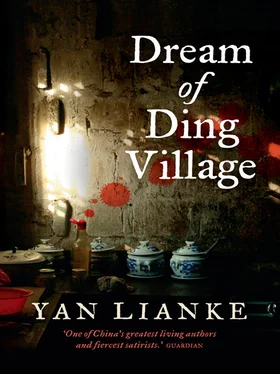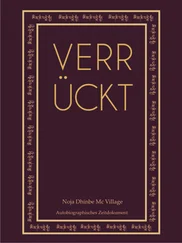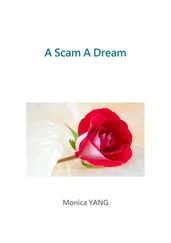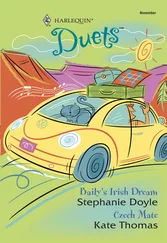The county director escorted his visitors on a house-to-house tour of Cottonwood. No one from Ding Village had imagined that another village could look so much like a big city. Even the streets had grand-sounding names such as Sunshine Boulevard, Harmony Avenue, Prosperity Lane and Happiness Road. Each door had a placard with the street name and house number clearly marked. Pigsties and chicken coops that had once cluttered courtyards were now concentrated in the centre of the village and surrounded by a low wall of clean red brick.
Inside the houses, even the household appliances and furnishings seemed standardized: refrigerators were to the left of the entry hall, televisions in the living room opposite the sofa, and washing machines in the bathroom next to the kitchen. Door and window frames were shiny new aluminum alloy; chests, wardrobes and cabinets were red lacquer adorned with gold leaf. The beds were heaped with silk and satin quilts and woollen blankets, and every room smelled nice.
During the tour, the Director of Education took the lead. My father followed close behind, with the people of Ding Village at the rear.
Outside on the street, they ran into a group of laughing, chattering village women loaded down with bundles of fresh vegetables and bags of fish and meat. When the villagers asked the women if they’d been out shopping, the women answered that there was no need to shop, because the village committee gave away food for free. All you had to do was go to the committee headquarters and collect what you needed for the day. If you wanted spinach or cabbage or chives, you just took some from the shelf. If you wanted pork, you got a chunk from the butcher’s block. If you wanted fish, you caught one from the public pond.
The visitors from Ding Village gaped at the women in disbelief, their suspicion as thick as city walls. ‘Seriously?’ asked my father. ‘Surely that can’t be true.’ His words seemed to offend the women, who stared coldly at my father and the other Ding villagers and then turned to leave without another word. They had better things to do than stand around talking to a bunch of country bumpkins. As the women walked away, they turned back to cast nasty looks at my father.
For a moment, he stood dumbstruck in the middle of that immaculate and well-planned street. Then, catching sight of another middle-aged woman loaded down with fish and vegetables, he ran over, blocking her path. ‘Hey,’ he said breathlessly. ‘Did you really get all that food for free?’
The woman gave my father an incredulous look.
‘I mean, who pays for all this fish and meat? Where does the money come from?’
By way of an answer, the woman pushed up her sleeve, revealing a patch of needle-marks on her forearm. They were about the same size and colour of small red sesame seeds. ‘If you’re here for a tour, then you must already know,’ she said, with a sidelong glance at my father. ‘We’re the model blood-selling village for the whole county, for the entire province. Don’t you know that everyone here sells blood?’
My father stared at the tiny pinpricks on the woman’s arm. Just as the silence began to grow awkward, he looked up. ‘Do they hurt?’
The woman laughed. ‘Oh, they itch a little when it rains, but they’re no worse than ant bites.’
‘Don’t you get light-headed, selling blood every day?’
The woman looked at my father in surprise. ‘Who says we sell every day? It’s more like once every ten days or a fortnight. If you don’t sell at least that often, your veins start to feel swollen. It’s like being full of milk and not being able to nurse your baby.’
Having satisfied their curiosity, the villagers allowed the woman to continue on her way. They watched as she carried her groceries through the door of her house at 25 Bright Lane.
After that, the villagers split up into small groups to explore Cottonwood. They wandered through the alleyways, gawked at the two-storey homes that lined every street and inspected the chicken coops and pigsties in the village centre. They visited the red-tiled, green-roofed kindergarten and admired the spotless new elementary school. They went wherever they wanted, asked whatever questions they wished and marvelled at this seeming utopia — a model for county, district and province — that had been made possible by selling blood.
The district and county blood stations were located at the village crossroads. Each looked just like a hospital, with a Red Cross insignia over the entrance and doctors in white lab coats bustling in and out. The doctors spent the entire day drawing blood, testing blood and classifying it into types. Eventually, the plasma was collected into larger bags and bottles that were disinfected, sealed and processed before being shipped somewhere else.
After my father had visited the blood-collection stations, he accompanied a group of young Cottonwood locals to a social club on Longevity Boulevard, the widest avenue in the village. The club was crowded with young men ranging in age from their teens to their mid-thirties. All of them seemed to be in high spirits, their faces ruddy with the glow of good health. Some played poker or chess, while others sat around cracking melon seeds between their teeth as they watched television or read books. My father was surprised to see some of the men playing ping-pong: back then, ping-pong tables were a rarity usually found only in schools or big-city gymnasiums.
That year, the weather was unseasonably warm. Although it was only mid-spring, the men of Cottonwood had finished the spring planting and had nothing to do but amuse themselves at their club. Caught up in the excitement of card games, chess matches and ping-pong contests, they rolled up their shirtsleeves, waved their arms about and shouted encouragement or good-natured profanity. My father noticed that each of these healthy young men, like the middle-aged women he had encountered on the street, had forearms pocked with needle marks. Each bare arm revealed a patch of tiny dots like dark-red sesame seeds left to dry in the sun.
After a while, my father left the club and rejoined his friends from Ding Village. They stood together along the broad concrete expanse of Longevity Boulevard, basking in the sunshine and enjoying the warmth and fragrance of Cottonwood. They rolled up their sleeves, exposing their forearms to the hot midday sun. Side by side, their tanned and naked arms resembled a row of plump carrots on display at a greengrocer’s stall. The heat beat down upon their skin, filling the air with the vaguely unpleasant smell of sweaty bodies. Mixed and muddied with other scents, it floated down the avenue like silt through river water.
The visitors from Ding Village looked down at their smooth, unscarred arms and exclaimed: ‘What fools we’ve been, to waste all this!’ They patted their untapped veins and muttered: ‘What the hell, let’s sell our blood. What do we have to lose?’
They slapped their arms and pinched their veins until the skin was black and blue, as mottled as a chunk of fat-streaked pork, and thought: ‘Screw you, Cottonwood. . you think you’re better than us? You think that only your blood is worth its weight in gold?’
3
And so the inhabitants of Ding Village began to sell their blood. What started as a trickle soon became a stream. Before long, it had turned into a blood boom.
In this village of 800 people, a dozen blood-collection stations sprang up almost overnight. Nearly every governmental organization got in on the act: the county hospital, the village hospital, the Chinese Red Cross, the veterinary hospital, the livestock breeding centre, the Department of Propaganda, the Department of Education, the Department of Village Administration, the Department of Party Organization, the Chamber of Commerce, the police force and even the local PLA military garrison had blood banks. All it took was a hand-lettered wooden sign, some medical equipment, a couple of nurses and an accountant.
Читать дальше












